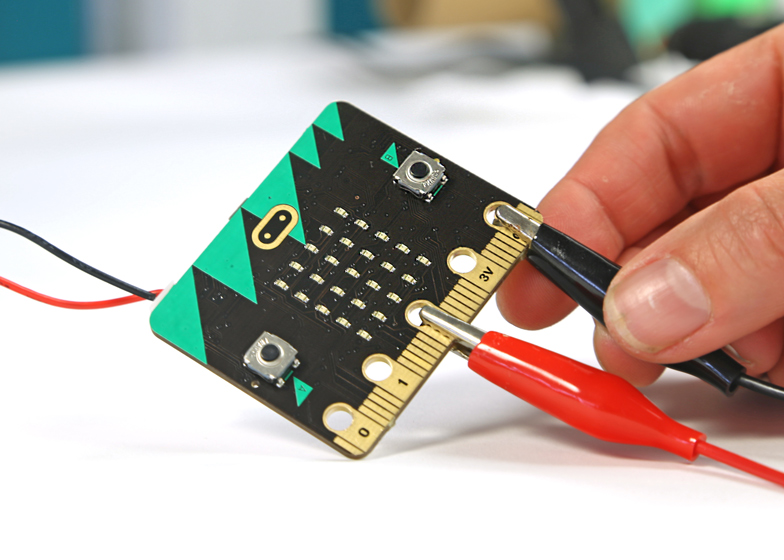Every 11-year-old child in the UK is to be given a programmable pocket-sized device designed by Technology Will Save Us to help them express their creativity through technology (+ slideshow).
One million BBC Micro Bit devices, which are about the size of a credit card, will be distributed via schools around the country.
Bethany Koby, founder and CEO of London collective Technology Will Save Us, told Dezeen that the devices were intended to make programming relevant to children.
"We want to be able inspire an 11-year-old girl who's into One Direction to learn technology skills that are going to be exciting, useful and related to her interests, and at the same time even teach her what an accelerometer is," she said.
"If you think about how technology education is positioned right now for an 11-year-old, they have to take ICT [Information and Communications Technology], where basically they learn how to make Excel spreadsheets. That's not technology."
Koby added: "What this allows them to do is understand that the world of technology in education is about sensors, programming, design, invention and actually solving a problem or wanting to experience something."
The five-by-four-centimetre device is billed as being "a tech tool like a Swiss army knife".
It features a programmable LED matrix, an accelerometer, a compass, control buttons plus Bluetooth connectivity so it can be operated by a phone or tablet. Input and output points allow the device to be connected to external sensors and devices.
The development of the BBC Micro Bit has been led by the BBC in collaboration with a range of partners including chip-maker ARM, Microsoft and Samsung.
Koby said the device was an updated homage to the original BBC Micro, an early programmable home PC that introduced many people in the UK to computers for the first time.
"The BBC Micro was something the BBC created in the eighties," Koby said. "It was designed to enable a generation to learn programming. When you meet people from ARM and Microsoft, most of the developers learned programming on the Micro."
The new-generation device reflects that way that people interact with technology today, Koby said.
"The interesting thing about the Micro today is that it's not a computer, it's a device," she said. "It's not about a screen, it's about the world. It's not about programming outputs on a screen, it's about making the physical world do stuff."
Sinead Rocks, head of BBC Learning, said she hoped the device would have the same impact as the original BBC Micro.
"It's our most ambitious education initiative for 30 years," she said. "And as the Micro Bit is able to connect to everything from mobile phones to plant pots and Raspberry Pis, this could be for the internet of things what the BBC Micro was to the British gaming industry."
"We happily give children paint brushes when they're young, with no experience," Rocks added. "It should be exactly the same with technology."
Based in Hackney in east London, Technology Will Save US is a design-led startup that produces a range of devices, kits and resources to help people learn about technology. Their DIY Gamer Kit was acquired by the Museum of Modern Art in New York last year for its collection of "humble masterpieces".
Technology Will Save Us was responsible for designing the physical aspects of the Micro Bit. "Our role was really interesting because we designed the physical look and feel of the engineering, the out-of-the-box experience and the user experience," said Koby. "For us design is not just about what it looks like. It's about what the outcome allows us to do."
"It's about taking the interests, behaviours and desires of an 11-year-old and putting them in the room with engineers and technicians and saying 'we're not designing this for engineers, we're designing this for 11-year-olds'."

